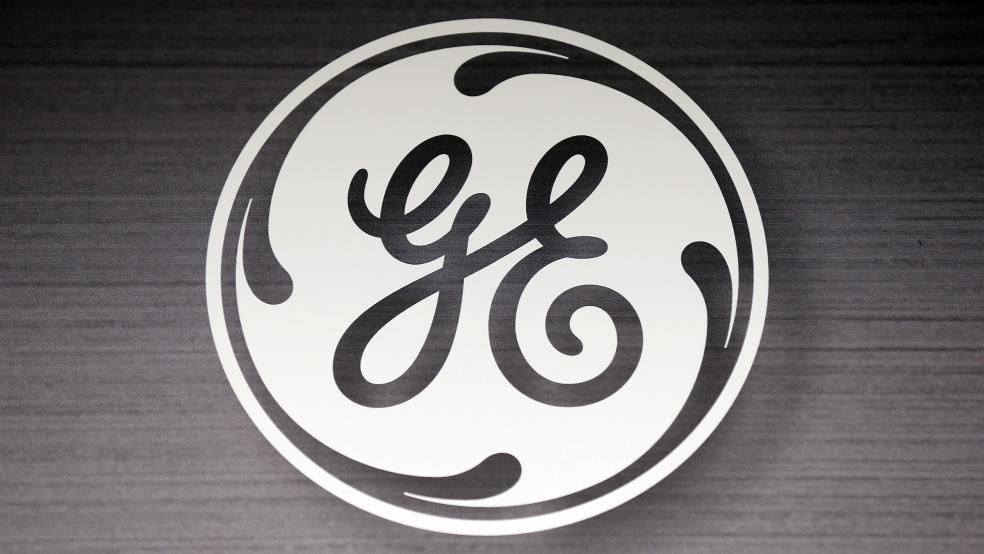General Electric (GE - Get Report) booked $3.3 billion in savings last quarter by widening retiree-benefit cuts from salaried positions to hourly production jobs, prompting a backlash from former employees who believed a career with the company would guarantee a comfortable retirement.
The savings on retiree benefits is the largest for the Fairfield, Conn.-based company since the Affordable Care Act was passed in 2010. Starting Jan. 1, hourly production retirees who turn 65 by the start of 2018 will be cut off from GE's traditional retiree health plan and, instead, reimbursed about $1,000 a year on the cost of Medicare coverage supplements purchased through Towers Watson's (TW) OneExchange, the company said in a letter to employees. Current employees who retire by June 23, 2019, will be offered the same reimbursement.
The change followed three weeks of GE labor negotiations that began in early June, focusing largely on post-65 health insurance benefits. The negotiations with GE's two largest unions -- IUE-CWA and the United Electrical, Radio and Machine Workers of America -- resulted in four-year national contracts on healthcare, wages, and pensions that will be extended to additional unions that provide local coverage, according to a GE statement.
GE has also made significant cuts to retiree life insurance benefits, the company said in its quarterly filing with the Securities and Exchange Commission. Production workers who retire between Jan. 1, 2016 and June 23, 2019, will be offered reduced coverage and the plans will be eliminated afterward. The filing didn't detail how much would be saved from the individual cuts, and the company declined to comment beyond a statement.
Related: The Worst States For Retirement in 2015
"Our program is consistent with trends among large companies," GE said in an e-mail. "It allows GE to offer greater choice in coverage while striking a balance among our obligations to employees, retirees, and shareowners."
Time Warner (TWX) was among the major companies in 2013, along with (IBM) and Walgreens (WBA), reported to transition to private healthcare exchanges, with Time Warner's board similarly discontinuing coverage for employees, future retirees and eligible dependents.
Gail Zorpette, an executive secretary who retireed from GE's headquarters in 2012, said the reimbursement barely compensates retirees for the new expenses and the inconvenience of changing plans.
GE revised its GE Medicare Benefit Plans handbook in 2012, underscoring the right to "terminate, amend or replace the programs or plans, in whole or in part (subject to applicable contractual requirements), at any time and for any reason," according to records in a 2014 lawsuit by two former GE employees, alleging that GE violated an implied obligation to provide continued health-care coverage. The clause existed in all previous versions of the handbook as well, GE said.
"It just doesn't seem fair," Zorpette, 75, said in a phone interview. "We had a terrible experience trying to figure out how to get similar coverage to what we were getting through GE through OneExchange."
Related: 7 Common Myths that Can Ruin Your Retirement
Curbing the health-care coverage for retirees marks the latest in a series of benefit reductions since passage of the Affordable Care Act, according to a retiree who spent nearly 40 years with GE, much of it working with pensions. He spoke on the condition of anonymity. The company recorded $832 million in savings in 2012 and $586 million in 2014, based on 2012 and 2014 SEC filings.
"We weren't trained to understand these plans," Zorpette said. "It seems like GE just took a step back and said, 'You're on your own, guys.' The bottom line is that we thought we would be OK, and I am not sure any more, especially if you keep getting nasty surprise after nasty surprise."
The changes mean some workers who retire at age 60 won't qualify for Medicare supplements, said the retiree who worked with the company's pension plans.
"That person thought he or she had all these plans when in retirement, but now has a letter that says you don't have this coverage unless you're 65 by 2018," he said. "There's going to be quite a bit of turmoil around these plans."
Several employees have already filed suits against GE over the changes, including Dennis Rocheleau and Evelyn Kaufman, who made the 2014 complaint.
"We believe GE has violated provisions of the Employee Retirement Income Security Act (ERISA) in decisions made in 2012 and 2014 to end this coverage," Rocheleau said in a statement about the suit, filed in U.S. District Court in Milwaukee. The company shouldn't have stripped "retirees of this valuable supplemental health coverage which they earned over long, productive careers with GE," he said.
The plaintiffs' motion for an injunction on the basis that GE breached an obligation, largely based on an interpretation of GE's handbook that it "intended to continue its plans indefinitely," was denied by U.S. District Judge Lynn Adelman.
Adelman did note in his decision that corporations "should not be encouraged to promise attractive benefits to employees and create the impression that such benefits will continue as long as certain circumstances do not occur" and then eliminate them regardless.
This article originally appeared on The Street.
Read more from The Street:
US Airways Ex-CEO Ed Colodny, 89, Will Fly on the Airline's Last Flight
AIG Doubles Dividend After Profit Tops Estimates
Sears Plans $1B Buyback in Debt as Same-Store Sales Drop




